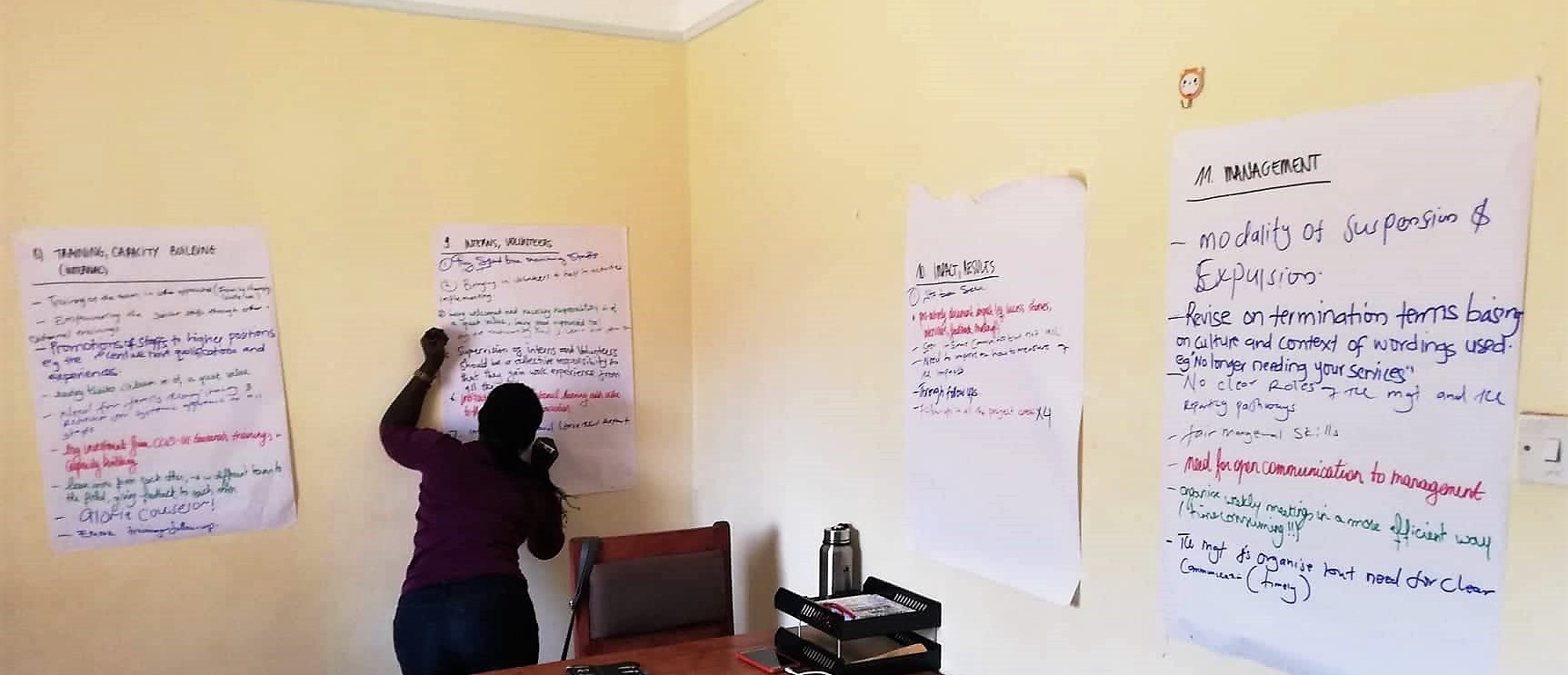REINTEGRATION OF CHILDREN DISENGAGED FROM ARMED GROUPS IN THE WORLD: AN INVENTORY
Country
Colombia
01/02/2010 - 31/01/2013
Department of Peace Building, Belgian Federal Public Service Foreign Affairs, Foreign Trade and Development Cooperation
There is a great need for conformity between the needs of children and youngsters who disengage from armed groups and the support offered to them. Our goal in this research project is to establish an inventory of the implemented methods and techniques, which are being shared insufficiently between the different organizations working in the field. We will integrate information we already possess concerning the support of the reintegration processes of children disengaged from armed groups in Northern Uganda and Eastern Congo, with the situation in Colombia and Nepal. We would like to verify how these processes operate and consider the contextual and cultural impact on the character and effectiveness of the reintegration of children and youngsters disengaged from armed groups.
SOCIAL CONTEXT
Colombia has a history of consecutive conflicts due to the bad economic situation, different coup d’états, civil riots and political and armed conflicts amongst others. Security forces, different guerrilla groups and paramilitary groups are fighting each other in the midst of civil society, with many civil victims as a consequence. The conflict is being financed by narcotrafficking, corruption, abductions, territorial control and so on. In addition, Colombia has a large gap between poor and rich. As a result of problems like displacements, disappearances, abductions, murders and massacres the country is in a vulnerable situation.
Although numbers are not concordant, it is estimated that between 11000 and 17000 children and youngsters are recruited by armed groups. This number seems to be increasing, whilst the average age is decreasing with estimates between 11 and 12 years old. More than 80% of recruitment is ‘voluntary’, because youngsters are not being offered alternatives for their precarious economic situation, their low or absent educational and vocational possibilities, the violence surrounding them (both in domestic and social spheres physical, psychological and sexual abuse is considerately present) and difficult family situations. All these elements along with the changing character of the conflict form a great challenge for the support in the reintegration of children and youngsters disengaged from armed groups.
Although numbers are not concordant, it is estimated that between 11000 and 17000 children and youngsters are recruited by armed groups. This number seems to be increasing, whilst the average age is decreasing with estimates between 11 and 12 years old. More than 80% of recruitment is ‘voluntary’, because youngsters are not being offered alternatives for their precarious economic situation, their low or absent educational and vocational possibilities, the violence surrounding them (both in domestic and social spheres physical, psychological and sexual abuse is considerately present) and difficult family situations. All these elements along with the changing character of the conflict form a great challenge for the support in the reintegration of children and youngsters disengaged from armed groups.
OBJECTIVES
The goal of this project is to replenish the obtained information in Northern Uganda and Eastern Congo to investigate the role of contextual and cultural factors in the character and effectiveness of reintegration processes.
We will attempt to obtain a global overview of knowledge and expertise on the reintegration processes of children and youngsters disengaged from armed groups, through the inventory of methods used in different countries around the world.
Furthermore we want to obtain a higher level of knowledge and expertise in the organizations and institutions offering support to children and youngsters disengaged from armed groups. We hope this will empower organizations to work out their methods, increase their effectiveness and thus fulfill the needs and expectations of these children and youngsters. We will establish recommendations concerning the support of reintegration on micro, meso and macro level.
Finally we aim to empower the children and youngsters, as their opinion and vision on the support they are being offered shall be involved in the research.
We will attempt to obtain a global overview of knowledge and expertise on the reintegration processes of children and youngsters disengaged from armed groups, through the inventory of methods used in different countries around the world.
Furthermore we want to obtain a higher level of knowledge and expertise in the organizations and institutions offering support to children and youngsters disengaged from armed groups. We hope this will empower organizations to work out their methods, increase their effectiveness and thus fulfill the needs and expectations of these children and youngsters. We will establish recommendations concerning the support of reintegration on micro, meso and macro level.
Finally we aim to empower the children and youngsters, as their opinion and vision on the support they are being offered shall be involved in the research.
PROJECT DESCRIPTION
Both in Colombia and Nepal we plan the research method that was previously used in Eastern Congo and Northern Uganda. We will map out the local context by interviewing local stakeholders and relevant institutions. Furthermore we will use interviews and focus groups with organizations that offer support to disengaged children and youngsters to obtain concrete information on the implemented working methods. Finally we will involved the children and youngsters by using interviews and focus groups to obtain information on how they experience the reintegration processes and which needs they have herein. The obtained information will be joined in a report per country. Additionally we will integrate the different country reports of Congo, Uganda, Colombia and Nepal in a global report.
